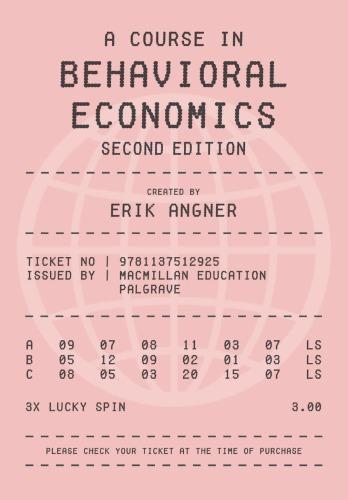Cancer screening Most colon cancers develop from polyps. Because early screening can detect polyps before they become
Question:
Cancer screening Most colon cancers develop from polyps. Because early screening can detect polyps before they become cancerous and colon cancer in its early stages, many doctors advise patients over a certain age to have a colonoscopy. Unfortunately, colonoscopies are experienced as embarrassing and painful. The typical person, when young, resolves to have a colonoscopy when older, but changes his or her mind as the procedure approaches. Assume that two patients, Abelita and Benny, have the choice between the following:
(a) having a colonoscopy at time 1 (utility = 0) and being healthy at time 2 (utility = 18); and
(b) avoiding the colonoscopy at time 1 (utility = 6) and be unhealthy at time 2 (utility = 0). Abelita discounts the future exponentially. Her d = 2/3.
(a) At t 5 0: What is her utility of a? What is her utility of b?
(b) At t 5 1: What is her utility of a? What is her utility of b?
Benny discounts the future hyperbolically. His b 5 1/6 and his d 5 1.
(c) At t 5 0: What is his utility of a? What is his utility of b?
(d) At t 5 1: What is his utility of a? What is his utility of b?
(e) Who acts more like the typical patient?
(f) Who is more likely to end up with health issues?
The beta–delta function also permits you to go the other way. Knowing a person’s preferences, the function permits you to compute their beta and/or delta. Consider the following exercise.
Step by Step Answer:







